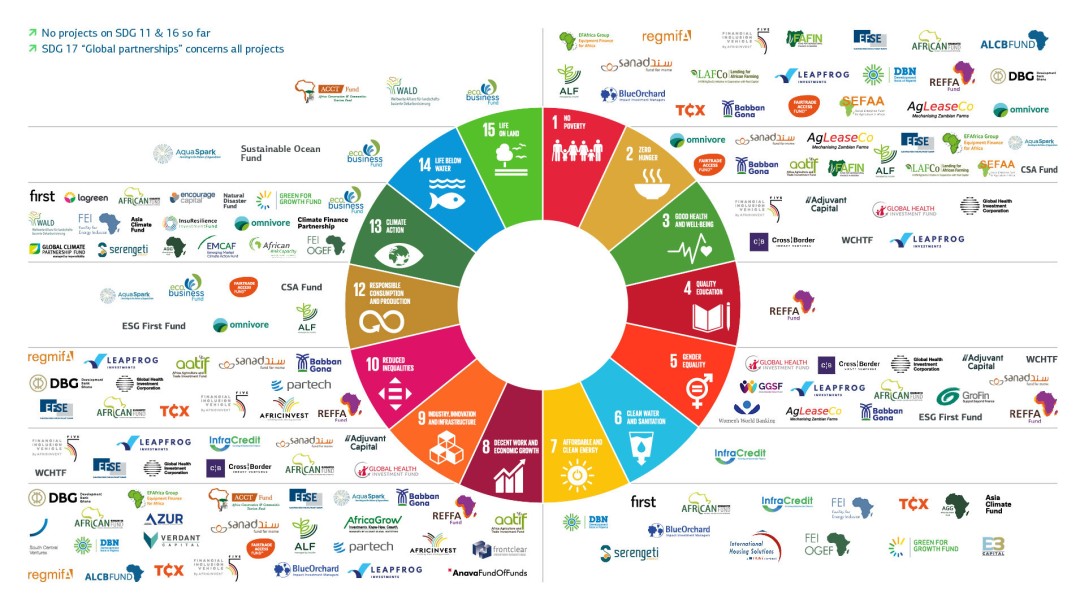Tip: Activate javascript to be able to use all functions of our website
20 years ago, investors who only wanted to invest their money in assets that would benefit society, or at least do no harm, were ridiculed as do-gooders. At that time, there were only a handful of banks that offered sustainable investments. On top of that, sustainable investments were often less lucrative than conventional investments.
That has changed in the meantime. In recent years, the number of conscious investors has significantly increased. This has also prompted the financial world to rethink and adapt its range of products accordingly.

Impact investments are one answer to the increased demand for sustainable investments. According to estimates by the Global Impact Investing Network (GIIN), the USD 1 trillion mark has already been broken in 2022. This is already remarkable, but there is still further potential for growth. For impact investment providers, it is not sufficient to mitigate the negative impacts of economic activities, as sustainable investments do.
They go one step further and only invest their clients’ money in companies that demonstrably add value to society. This can be social or ecological. In addition to a promise of return, investors thus also receive an account of the impacts achieved by the invested money.
Impact funds are a popular form of investment for impact investments. Here, investors leave the money with the fund manager for a certain period of time. The fund manager then invests it in various assets. Unlike conventional funds, however, the investment options are limited to beneficial investments, ideally in economically disadvantaged countries of the global south.
This is often a challenge for fund managers because these countries in most cases are subject to higher risks. However, since the funds invest in different countries or industries, they can spread, and thus minimise, their risk accordingly. The impact funds promoted by KfW Development Bank often have a risk capital buffer that absorbs potential initial losses. For example, if a fund’s risk capital buffer is 10%, investors will not bear losses until this threshold is exceeded. KfW assumes such first loss tranches on behalf of the German Federal Government and the EU, and is one of the largest investors in first loss tranches worldwide.
The range of areas and industries covered by impact investments is very diverse. Below are some examples:
Extreme weather events are increasing as a result of climate change. Countries in the global south are particularly affected. Floods, storms and droughts are causing damage and endangering livelihoods.
An investment strategy launched by KfW on behalf of the German government is creating and improving climate risk insurance for households and businesses in several economically disadvantaged countries. At the end of 2024, more than 79 million poor and vulnerable people were covered against climate risks. The InsuResilience Investment Fund, for example, invests in companies that offer and provide insurance, as well as service providers that provide necessary data or information. Via the use of parametric products, an insured person does not have to furnish detailed evidence of a loss after a disaster. Instead, objective external weather data is used to trigger payments – without a loss assessment. This way, customers receive their money promptly and without much administrative effort.

In order to turn a good idea into a successful start-up, you need equity, venture or risk capital. Especially in Africa, the market for this is still in its infancy. The total financing gap for small and medium-sized companies in Africa – start-ups included – is estimated at over USD 300 billion. Investors are often only willing to invest in established companies. Start-ups and young companies often fall by the wayside. KfW’s participation on behalf of the German Federal Government in Partech Africa Fund I and II, two venture capital funds active in Africa, addressed this gap. Founded in 2017 and 2023 respectively, the funds have raised a total of over EUR 405 million in funding from public and private investors and have so far provided 24 companies in nine different African countries with venture capital. The funds' clients include successful technology companies that make a valuable contribution to the digitalisation process and economic development in their countries.
Public and private borrowers in emerging markets often rely on foreign lenders for financing. However, these lenders usually only issue loans in hard currencies. This exposes local borrowers to exchange rate risk. If their currency depreciates, the repayment of the foreign currency loan becomes more expensive. This can lead to considerable financial burdens.
TCX is an initiative supported by KfW on behalf of the German government that enables local currency loans by hedging interest rate and exchange rate risks. It provides hedging instruments to protect borrowers against precisely these exchange rate risks. TCX does not compete with commercial banks and only hedges currency transactions and maturities for which there are no commercial alternatives yet. In 2024 alone, TCX hedged a volume of approximately US-Dollar 2.8 billion in loans in developing and emerging countries against exchange rate risks.
Looking at the societal demand and, above all, the capital requirements for impact investments, the end of the line is far from in sight. There is still a high demand for such investments. Unlike in Switzerland, German private investors cannot currently invest in impact funds. Institutional investors such as insurance companies and pension funds are allowed to do so, however. Fund managers, insurance companies and institutional investors are already working on expanding their range of products. The positive experiences from previous impact fund investments help to establish impact investments more and more.